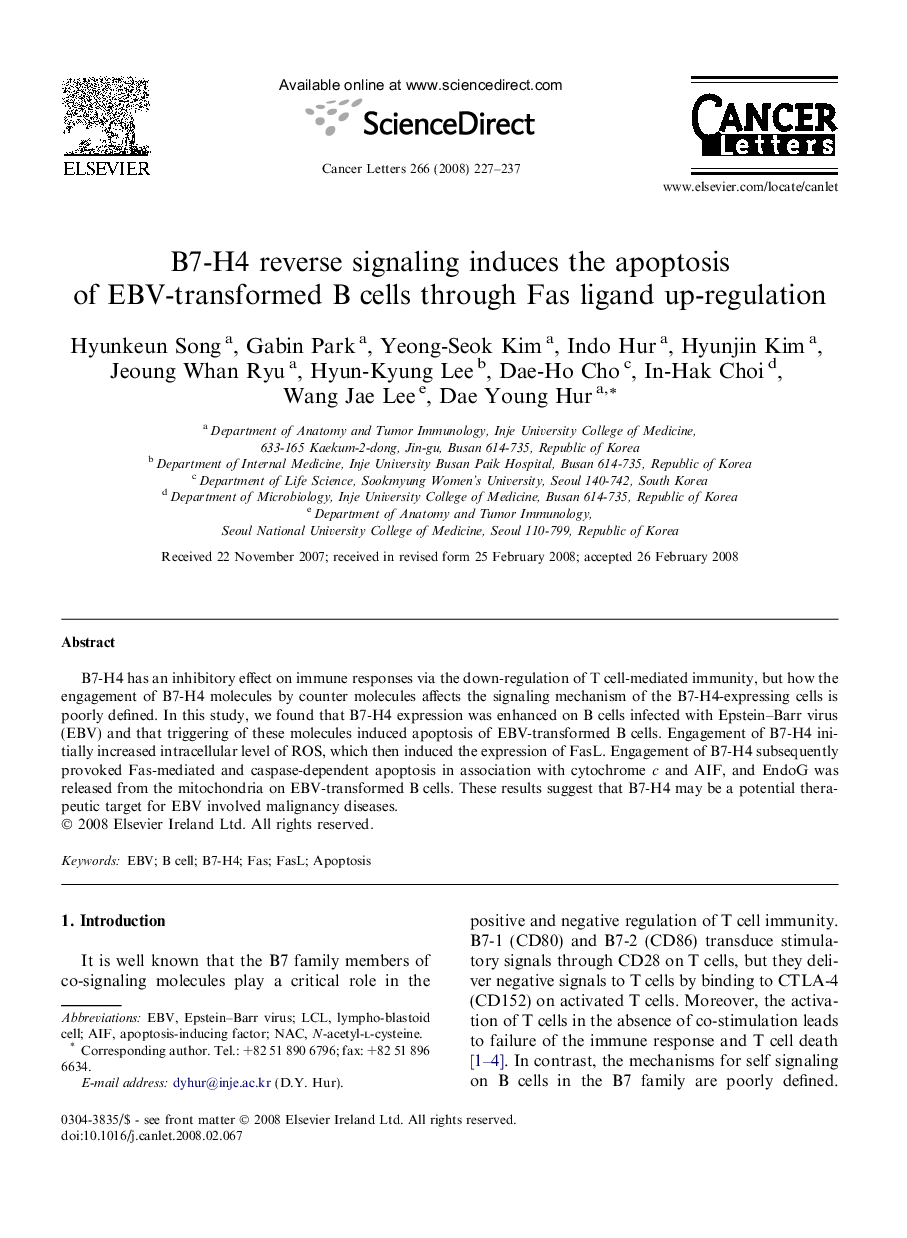| Article ID | Journal | Published Year | Pages | File Type |
|---|---|---|---|---|
| 2114755 | Cancer Letters | 2008 | 11 Pages |
B7-H4 has an inhibitory effect on immune responses via the down-regulation of T cell-mediated immunity, but how the engagement of B7-H4 molecules by counter molecules affects the signaling mechanism of the B7-H4-expressing cells is poorly defined. In this study, we found that B7-H4 expression was enhanced on B cells infected with Epstein–Barr virus (EBV) and that triggering of these molecules induced apoptosis of EBV-transformed B cells. Engagement of B7-H4 initially increased intracellular level of ROS, which then induced the expression of FasL. Engagement of B7-H4 subsequently provoked Fas-mediated and caspase-dependent apoptosis in association with cytochrome c and AIF, and EndoG was released from the mitochondria on EBV-transformed B cells. These results suggest that B7-H4 may be a potential therapeutic target for EBV involved malignancy diseases.
